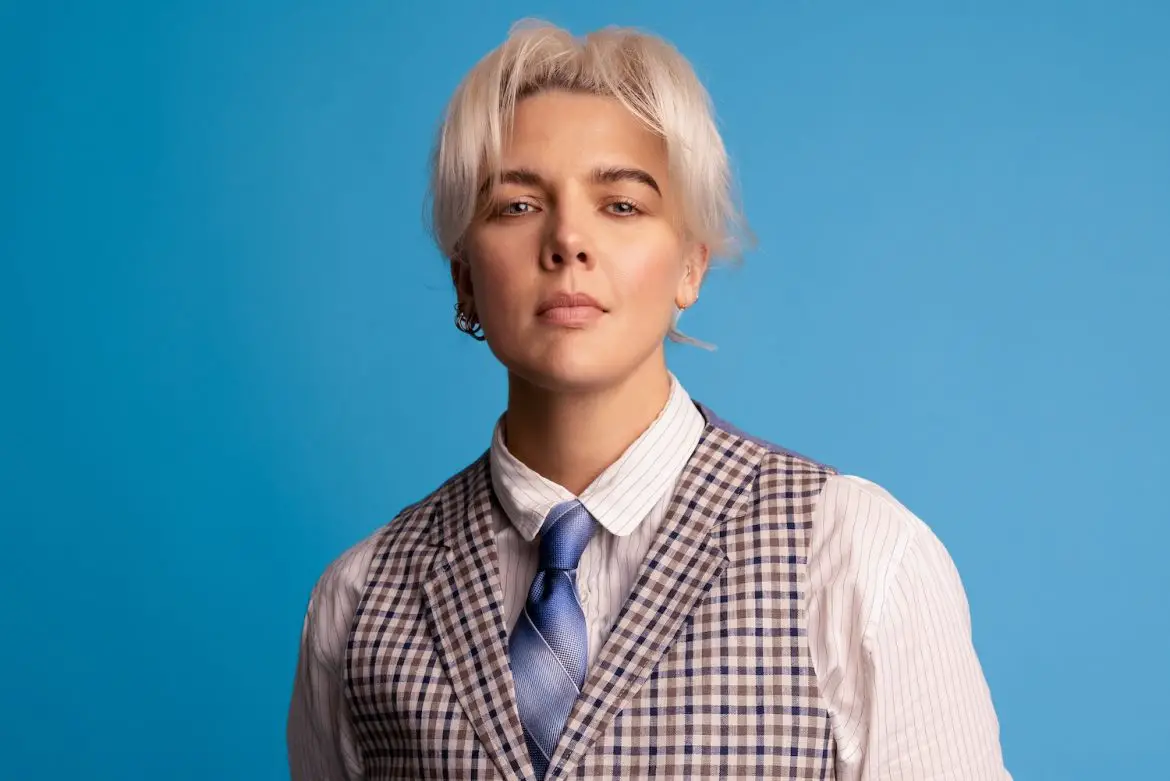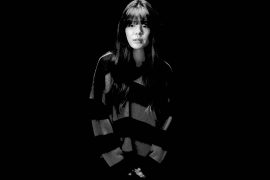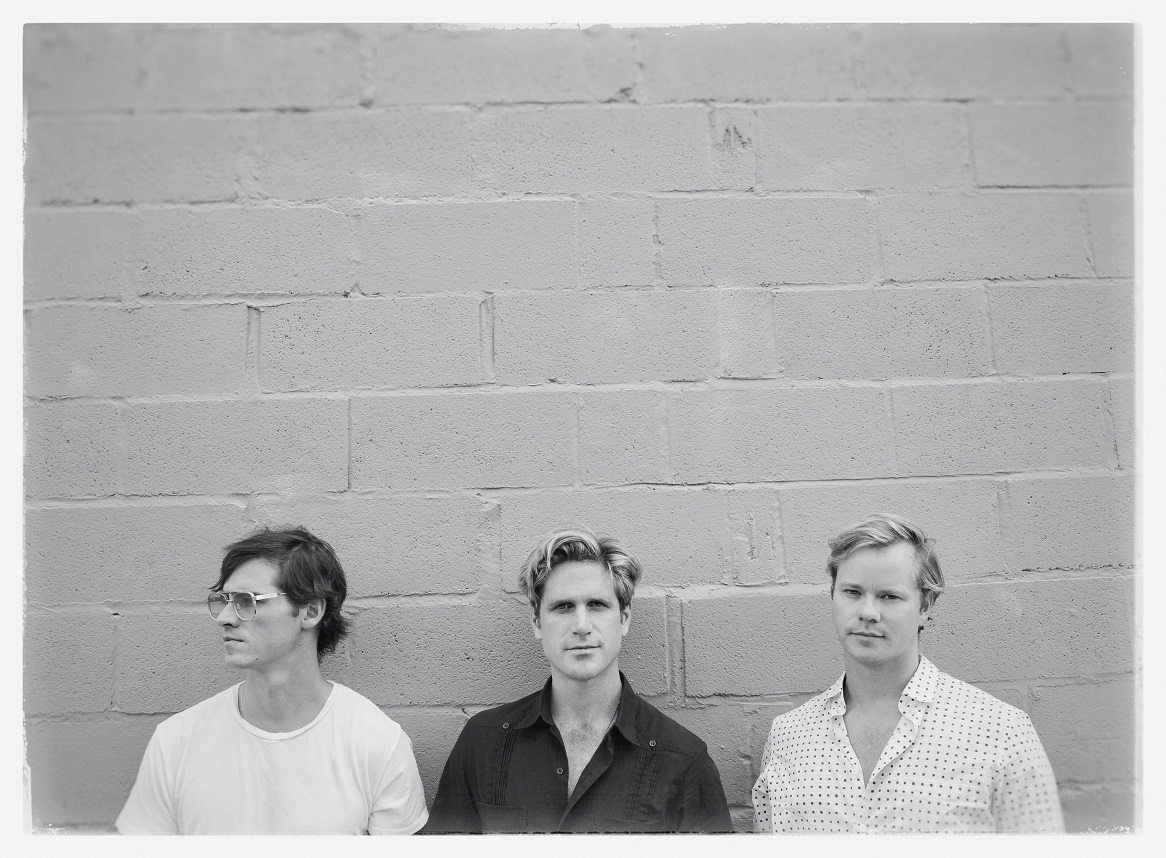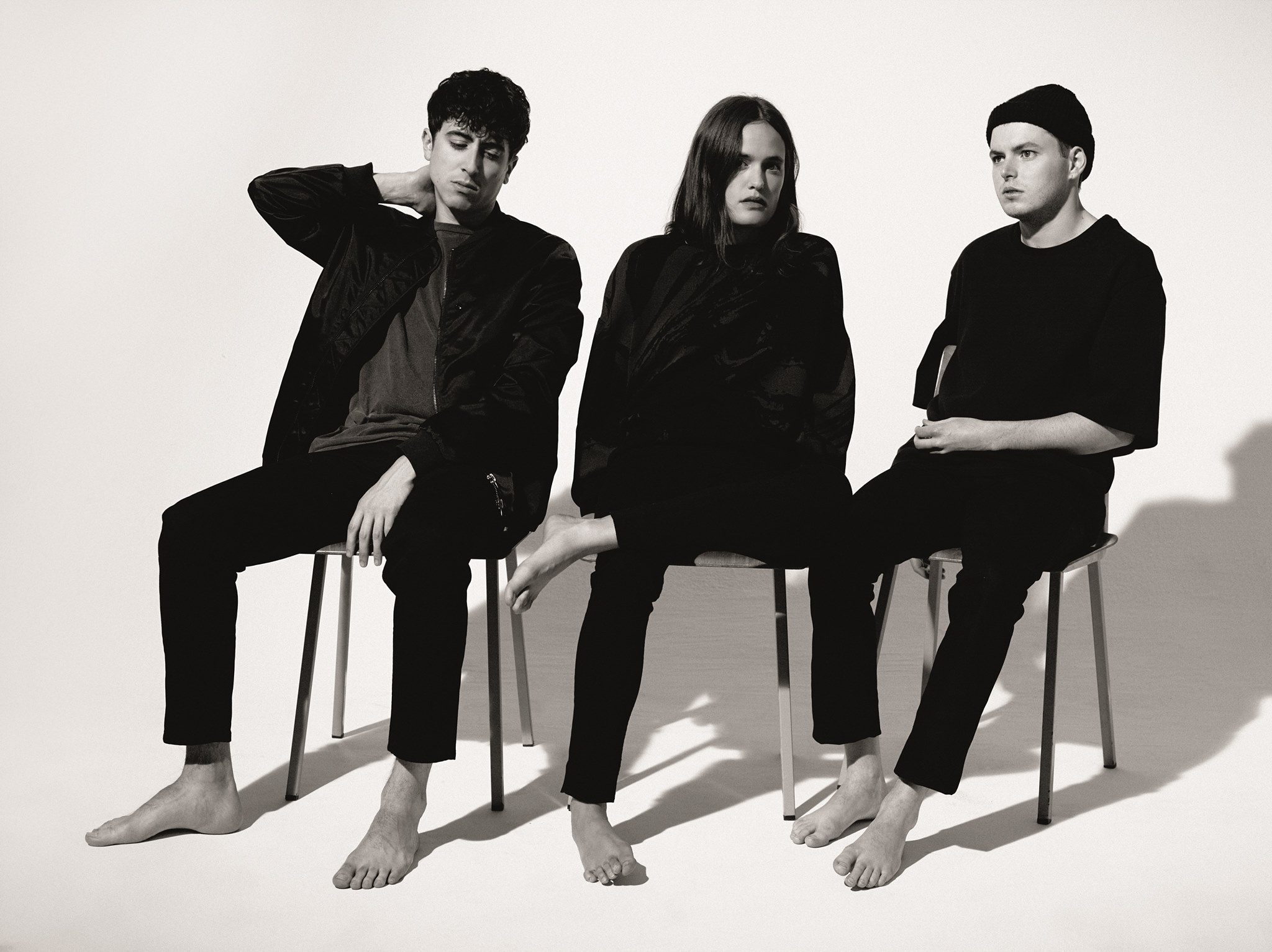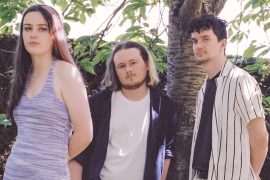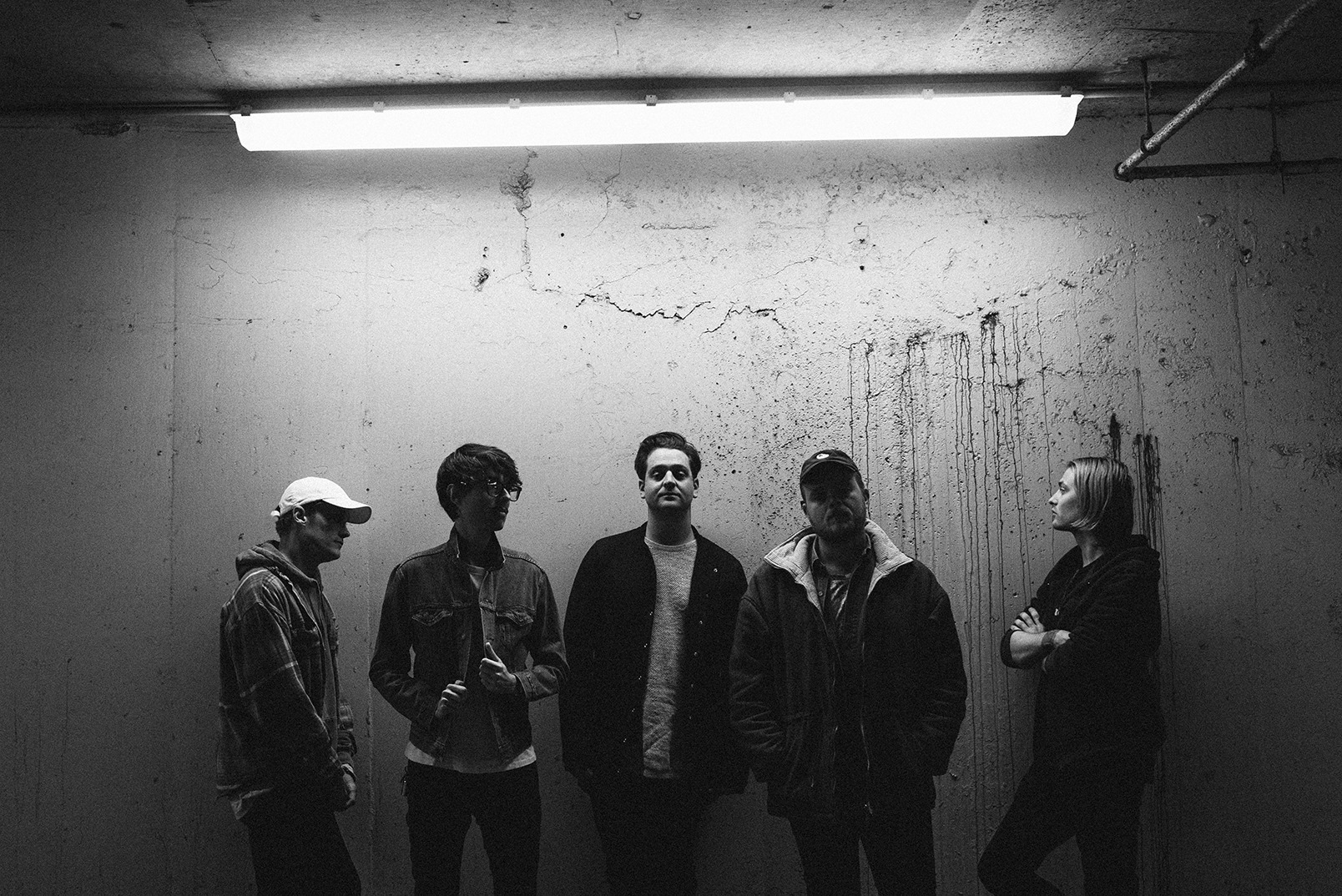Betty Who spoke to Atwood Magazine about her fourth album ‘BIG!’ and the journey of self-acceptance that was its genesis. With her signature alto sound and ’80s-nostalgic vibe, Betty Who is elevated to a new level with her latest installment.
Stream: ‘BIG!’ – Betty Who
I’ve been astral projecting out of my body for the last three years, just waiting for the moment that I get to go on tour and play this new music for people.
The COVID-19 pandemic changed the music industry in innumerable ways, many of which have yet to be seen, and created new challenges for artists at every level of their career. With so much pressure to self-improve and self-promote, artists can burn out and become discouraged. Betty Who is not one of those artists. Betty Who, whose last album came out in early 2019, has spent the past couple of years honing her already killer dance moves, dabbling in reality TV and ultimately diving into the depths of her own psyche to create songs about the most vulnerable edges of a woman’s relationship to self-confidence.
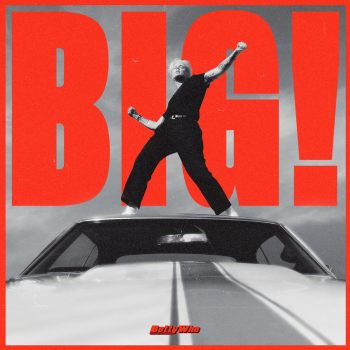
BIG!, Betty Who’s fourth studio album (released October 14 via BMG Rights Management), tangles with insecurities in a nostalgic way, as though she’s in conversation with younger selves and living the truths that they couldn’t. “BIG,” the titular track, exposes the raw vulnerability of what it means to be a girl in a large body- an experience that many struggle to find anything but isolating at a young age. Now, at 6’2”, exuding confidence and using that same body to create a marvel of a performance at every show, she’s able to reflect on that formative experience with tenderness for her younger self.
Throughout this album, Betty Who considers the ways she’s found herself in her music, and the way the stagnation of the pandemic has made us all reflect on where we’ve come from and where we’re going. The uniqueness of this project, as it pertains to the themes of self-confidence and self-liberation, is in the way these difficult and heartbreaking experiences are treated so delicately and without bitterness. BIG! Is a celebration of growing and changing, but also a memorialization of the path that took her to become herself.
— —
:: stream/purchase BIG! here ::
A CONVERSATION WITH BETTY WHO
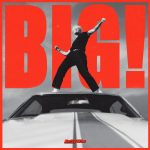
Atwood Magazine: I was hoping you could get started by telling us a little bit about this upcoming project and what you're most excited for people to experience and listening to it.
Betty Who: I guess the thing I’m probably the most excited about is people experiencing it. I’ve been astral projecting out of my body for the last three years, just waiting for the moment that I get to go on tour and play this new music for people. And so I think as much as there are many aspects of the work that I am lucky enough to do, the number one thing that brings me joy, and makes me feel like I’m making a difference in the world, is when I get to be in the room with people actually connecting and experiencing each other, and creating community. So I think that’s the number one thing I’m the most excited about; getting back out to be with people. I just played a show in Nashville last weekend, and saw the handful of people who’ve been coming to see my shows for almost ten years now wearing their t-shirts from tours in 2017… You know, it just made me realize how long of a journey we’ve all been on together. I’m so looking forward to connecting again.
I think a lot of people are very much excited about reconnecting, and so for your fans that have been around since before the pandemic, before previous tours and whatnot, what are you most excited to show them and to bring to them?
Betty Who: I am probably the most committed to performance and being myself, and through that trying to lead by example of owning your best and worst features. You know, living into who you were always born to be. I think that that’s a big theme of this record and something I really want to encourage others to do; to be able to be themselves in whatever way that means. For a long time, I wasn’t really comfortable doing that. So now that I’m trying to find my way, it’s still very much an experiment. Every time I walk on stage I’m trying to figure out what I feel best in and how I can be myself the most comfortably and confidently. I think through that experience, and through that journey, I’m really hoping for my fans who have been around for a long time to see that and to feel that. And for them to feel like I am even more committed to creating space for them and allowing them to be themselves.
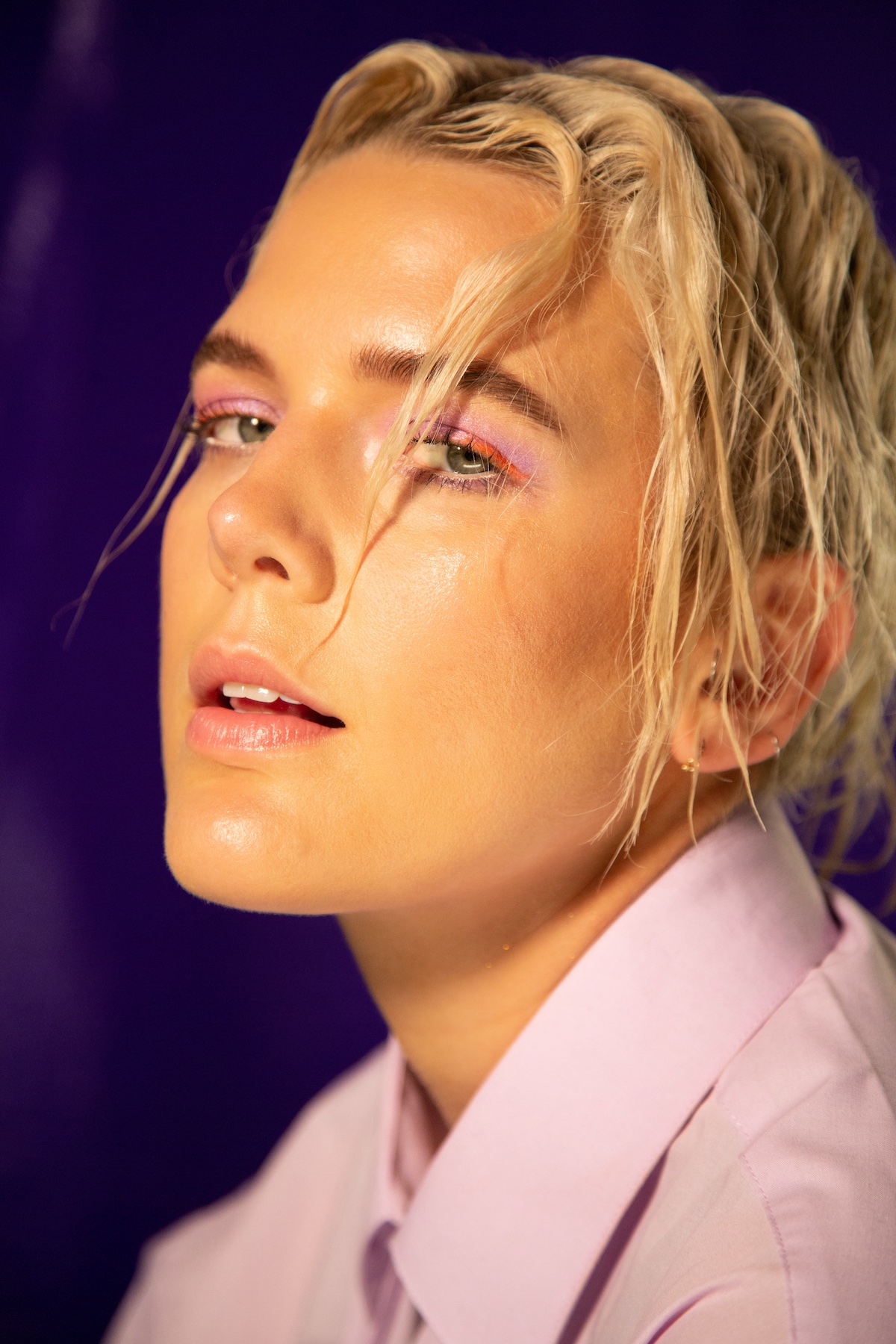
That's awesome. Thinking about your song on the album, “She Can Dance,” I would love to hear a little bit about your relationship to dancing. Is there anything that kind of distinguishes how you see your own artistry in terms of dancing and singing and performing?
Betty Who: Music has been something that I’ve had a lot of training in, I started playing cello when I was four. I went to performing arts high school, I took ten years of classical theory, and then three years of jazz theory when I went to Berklee for music. Of course, I have impostor syndrome, every now and then. But I think I have a lot to offer. And I don’t have to really question that. Dance, on the other hand, I have zero training in and is genuinely just something that I have so much passion for and have had to really come to terms with and try to get better at. Really just as a labor of love. So music always felt like it was written in the stars for me, but dance was something I actively sought out and wanted to be. And you know, I have always felt like I had a lot of energy. And I knew that I didn’t just want to stand on stage and sing, I wanted to be an entertainer. I grew up watching Britney Spears and *nsync and Beyonce and Jennifer Lopez and Michael Jackson and Janet Jackson, and these kinds of performances. These entertainers who also used their bodies to express themselves and move and perform are the people that I grew up watching, and then it was really hard for me to imagine not wanting to also pursue dance. It’s one of my favorite things that I do, my relationship to my body and to my performance has so much to do with the way I can express myself physically. I’m really proud of how far I’ve come. And also, I can’t wait to continue to grow and sort of find more of myself in dance because I feel like I’m still at the beginning of this journey.
Yeah that's interesting. And I'm very surprised that you weren't classically trained, because I've seen your performances and you're very impressive.
Betty Who: Oh, my God, that’s so nice.
Yeah, it's an amazing undertaking.
Betty Who: I took beginner’s Hip Hop when I was like, 13 for a semester, you know what I mean? But that’s about all of the dance training I’ve ever had.
That's a success story right there.
Betty Who: It’s taken a lot of hours in the mirror on my own. That’s really what I did during quarantine. I would just lock myself in my parents’ basement, and I would learn dances from music videos, and I would watch myself in the mirror and be like, why did they look better doing this? What am I doing wrong? Maybe I have to put my shoulders back a little more. Do I have to pop my hip this way? A little bit? I’m very hard on myself in probably a little bit of a psychotic way. But I think that’s maybe what it takes. I really enjoy the process.
Relatedly, obviously a big element of this album is self consciousness and self examination. And I did want to talk about the title track and the album name, and hear about your experience as a tall woman who has this big commanding presence. And more specifically what that was like for you growing up, and just now coming into your own.
Betty Who: Yeah, it’s just really interesting how much I didn’t identify with being a big person for so long. I think I was really running away. I’ve been running away for so long from the thing that I fundamentally, ultimately, was born to be. I hit six foot when I was 12. My height is the first thing people see when they meet me. You know, it’s such an important part of my life that I kind of was like, no, don’t look over there. No, don’t look at this, I don’t want to talk about it. I think the fact that it’s such a big theme on this record is because I just wanted to make music for other people. It wasn’t about me, it wasn’t about my experience, it was just like, I want to make music because I want to go out and tour and I want to perform for people. Especially being away from the world’s perception, with all of us having a couple of years of locking ourselves away and spending time with ourselves, a huge part of what came out of that time spent away from the world’s perception of myself was how insecure I actually have been.
Except for someone who thought they were so confident, how insecure I really have been for my entire adult life about this thing, trying to squeeze myself into women’s clothes and pretend like I’m a size six, is so funny. It’s so strange now thinking about it. Dealing with that through the music, and accepting that part of myself, I’m still on that journey. of accepting that part of myself. Watching videos of myself from pre-COVID and being like, oh, every choice I’m making on stage is to look smaller. I hire boys to dance with me who are over six foot tall, so it makes me look more normal. It’s such a funny feeling that there are so many choices I’ve made out of fear and out of insecurity. Musically, I have always really hurt myself also, because I have been afraid to put all of my energy and all of my attitude and all of my personality. I have hashtag big personality… I don’t want to say aggressiveness. But definitely a larger than life, part of myself that I’ve been trying to mold into looking like everybody else for a long time. And now I’m kind of like, well, I guess if I’m here, I might as well swing for the fences and really try and be myself and see if that makes a difference. See if people respond to it more or see if people hate it. I’m just trying to gather information now and see what people respond to and see what makes people feel good and seen. And iif everybody hates it then I guess I’ve learned something here, you know?
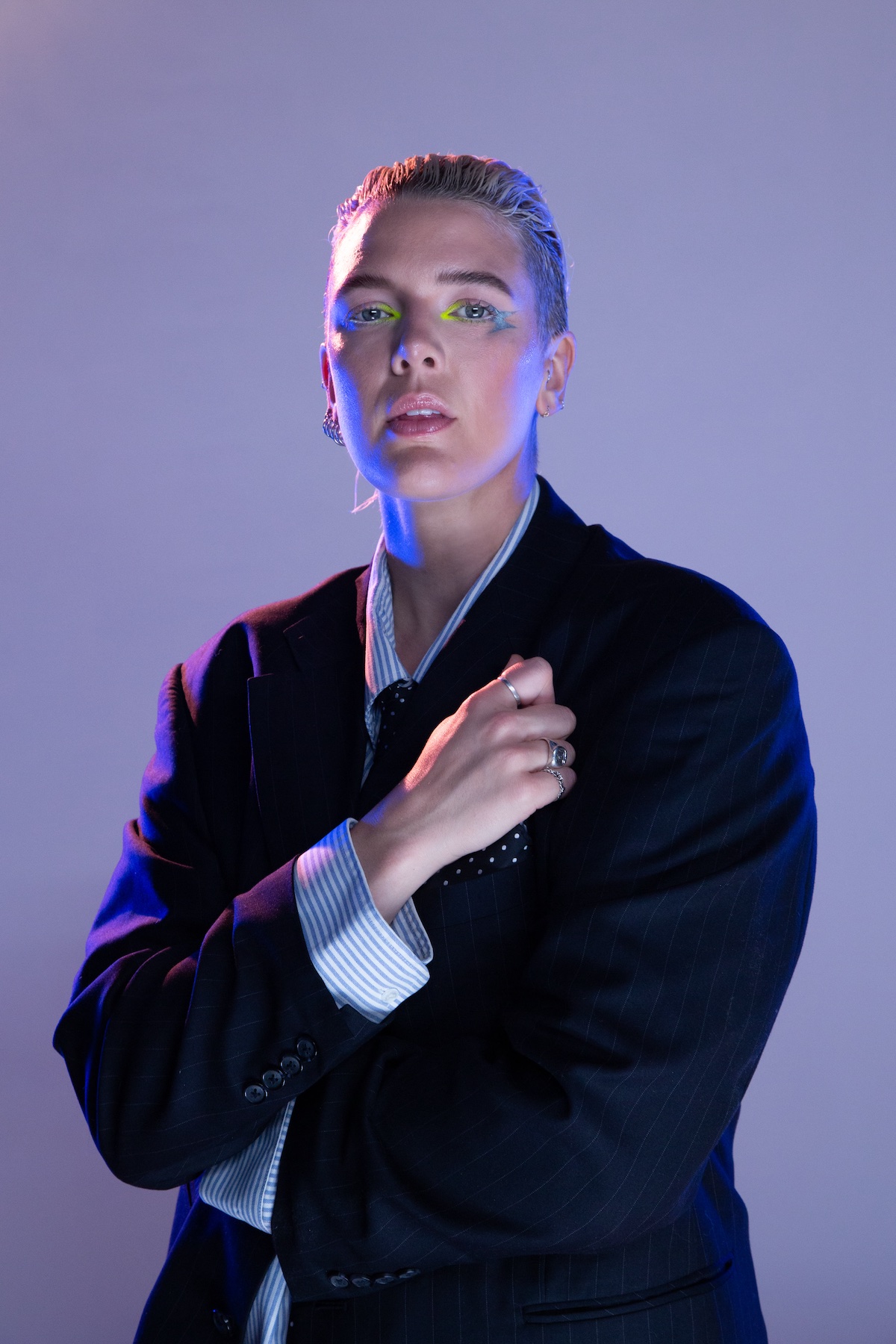
Yeah, yeah. As a tall woman myself, one of the biggest reasons that I was like immediately impressed with you when I saw you at Firefly, I think in 2018, and I was like, Wow, this girl's is tall! And I do appreciate the use of the word big instead of tall because I think as women, we're very afraid of the term big oftentimes.
Betty Who: Yeah, because it’s this misconception or I guess the thing that is underlying the big is that it’s wrong, you know, and that it’s different. It’s unusual. And I’ve always felt other in so many ways, so because I’m so tall, it automatically makes me really, really different. But instead, I’ve really focused on I’m different because I’m funny, and I’m loud. And I can be all these other things, but I’m pretending like I’m not 6’2”. It’s just so funny now, the more I embrace it, the more I’m like, oh, of course. To quote my favorite film of all time, the cinematic triumph that is The Lizzie McGuire Movie, “Why are you trying so hard to fit in when you are born to stand out?”
It feels like a lot of the tracks on this album, kind of revisit feelings that we have when in our younger days, like self consciousness, and the things that come along with puberty. Since you last put music out do you feel like you've had a lot of these, like, transformative, extreme experiences, now later in life?
Betty Who: I don’t think I’ve ever written a record for my younger self, or to really even honor myself. I’ve been really wrapped up in the process of the business of it all, like the music has got to be out by a certain date. And then we got to shoot the videos, and then we got to go on the tour. I had a really big change, I parted ways with a manager who I had been with for ten years, who I had been on this really long relationship and journey with. And for the first time I was really out at sea out on my own, and had to look around and be like, now I get to decide what do I really want? Where am I going from here? It was a really, really intense and scary time in my life, professionally, as well as personally.
Someone reminded me during that time, you need to remember it’s actually about the music. And I was like, oh. That sounds so stupid and obvious. But this was really useful information for me because I was too busy worrying about twenty five steps after the music. And it really brought me back to being present and thinking about what I really wanted to say; what I really wanted to use this record for. And it was so much for my younger self, when about 10-year-old me being obsessed with Britney Spears. And I still ride for Britney all day. But Britney is a five foot four woman who was probably 95 to 100 pounds when I was watching her perform. The last time I was 100 pounds I was literally six years old! I did not see myself in culture at all in a way that made me feel powerful or accepted.
Now I’m realizing how much. Now I’m 30 and being tall is awesome and I made it, but it really took me a second to get here. That’s why representation matters. I have a really hard time actually listening to “BIG” without getting really emotional and really weepy because I realized how badly 10-year-old me really needed to hear a song that was about standing into who you are. It’s a metaphor, isn’t it? You don’t have to be a tall woman to relate to the song. It really changed my perception of myself. I like when a song is a little bit of a prophecy and you write it before you really know what it means. And then you look back at it and you’re like, holy shit, I really did myself a favor here. This song has grown beyond the thing that it was when I wrote it, as it so often does. Now, I really want to create that space for young queer people, and also really young women who grew up like I did, not really seeing themselves in culture, and wanting to be seen and find their place in the world.
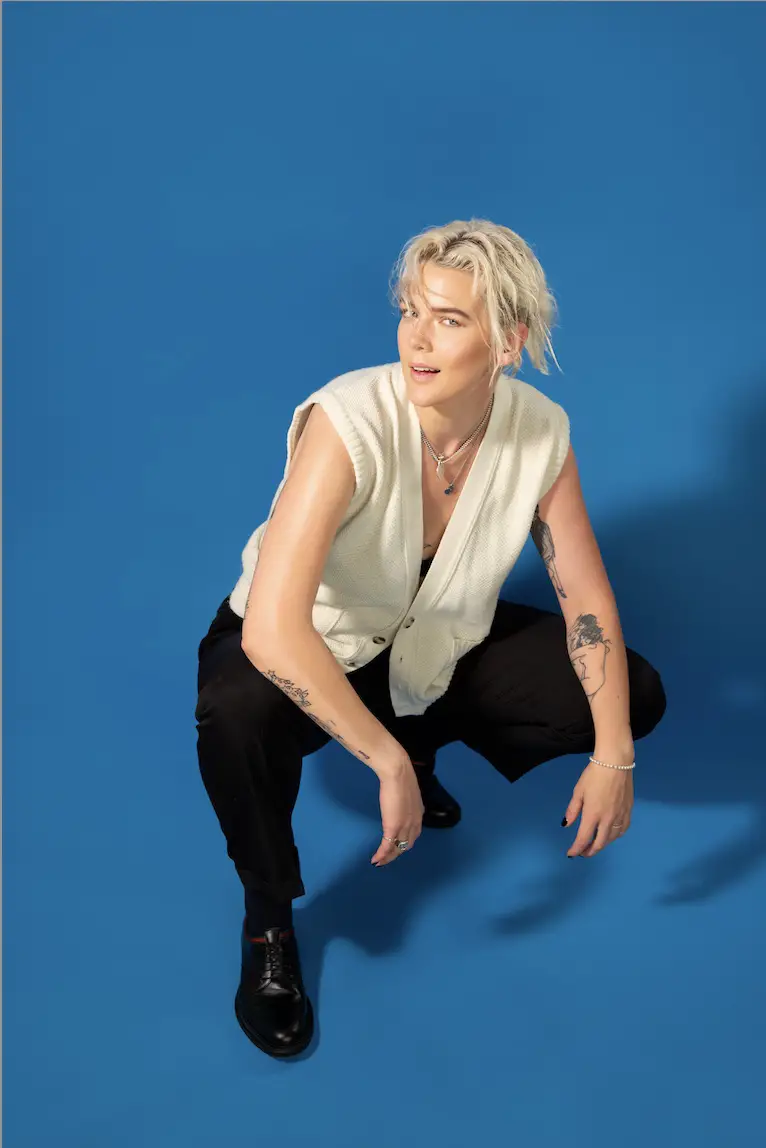
I have a really hard time actually listening to “BIG” without getting really emotional and really weepy because I realized how badly 10-year-old me really needed to hear a song that was about standing into who you are.
Yeah, and definitely agree with what you mean about how much representation matters. I think for the intersection of young queer people and people who find themselves outside of the body standard, it feels like a lot of the tracks on this album in their different topics speak to all of those people.
Betty Who: That makes me glad, thank you for saying that. At some point, entertainment can be really self serving, obviously, and there has to be some kind of tiny narcissistic, if not large narcissistic, part of an artist that makes you think that you’re better than anybody or that you deserve to speak for masses. There has to be some sort of self-obsessed part of you. I was writing that part of me for almost a decade, and now I’ve arrived at this place where I don’t know if I want this for me anymore. I don’t know if that is enough. I think it has to be for something else. But at this point in my life, I really landed on the fact that I want to speak to the 10-year-old me and whoever that person is out there, whether they’re living in Oklahoma or Sydney. Wherever in the world that a young person hears a song that makes them feel like, oh my god, I’m not the only one! And that’s what music does for me. Like when I was listening to Joni Mitchell as a kid,was a kid being like, how did you write a song about my life? I can’t believe you did that.
I would love to hear more about “Blow Out My Candle” as the first single from this album and the story behind that for you.
Betty Who: Yeah, it’s so hard to pick singles, right? I love all my children equally. We entertained so many different song ideas and actually had a friend recently be like, why wasn’t “BIG” the first single? At the time, I felt like “Blow Out My Candle” is the song that I am most trying to manifest, if you will. There are some days that I really believe it. But on the days that I don’t, and I get to perform it, it ignites something in me that sort of re-energizes me and recommits me to this journey that I’ve been on for so long. So I think “Blow Out My Candle” and “BIG” to me are the songs that not only do I want to share with everybody else, but that I actually still need to hear. I’m trying to manifest that energy for myself more and more.
I feel really grateful to have this song that came to me, or whatever you want to call it. I feel like it was really a gift from whatever divine inspiration is when I get to perform it. I also just really want to make music that makes people feel like, I can do this. That’s a really difficult line to find between inspirational versus cheesy music. It’s a really difficult line to walk and I remember when I listened to “Blow Out My Candle” personally, I feel like we found a really beautiful balance of, you know, the Rocky montage of running up the stairs. I think it gives a little bit of that.
Definitely. I get what you mean, and I think you do a good job of balancing the fun, flirty, promiscuous elements in tandem with the rock anthems and having a message. I feel like this album has a lot of both.
Betty Who: Oh, that’s awesome. I want it to be so confident. One thing started at the top of the mood board for me and my executive producers, Martin, Brandon, and Dana and these three boys that I made this record with. When we went in on the first day to finish the record, we had two weeks where we were just kind of cooking through everything.What I said to everybody is that I want the songs to be so confidently me that you hear them and you go, nobody but Betty could be singing this. Like I don’t want a single song on the record to sound like somebody else’s story. If there’s a part of it that reminds you of a different artist then I want to change that part and make it more me. When we finally got the finished album, I took it to my friend’s studio in LA and I was like, I haven’t heard this on massive speakers. Can I come and blast this record in your studio with you? There’s a lot of confidence in this record, almost in a shocking way to me. It’s funny how it’ll hit you randomly. I think it’s so fun. I wanted to play that cute girl who’s so tiny and petite I could blow away in the wind, you know, and it’s like no that’s not who I am. I have to live into this body that God gave me and and sing music from my pelvis and commit to it. Again, it’s that prophecy of writing and asking, Can I pull this off? Can I say this? Can I do this? Can I give myself this permission? I listened back to the record as loud as I could in this huge studio on these massive speakers. I was like, yeah, this is a cool vibe for me. I’m proud of myself for really going there and giving myself this character a little bit more.
Yeah, that's amazing. And I definitely appreciate hearing all about the inside inside all these tracks. Is there anything else you want to share about the experience with this album?
Betty Who: Yes, the experience I had shooting, The One That Got Away, this Amazon TV show that I hosted over the summer. Something that I experienced while I was shooting that television show was how out of my element I was. I don’t often feel outside of myself with music, but hosting a dating show! I was like, What the f*ck am I doing here? It was actual impostor syndrome for the first time in a long time. It really shook out all the cobwebs of my performer hat and I just had to throw myself into this experience and trust everybody around me. You have to believe in the process and see what happens, and really let go of control. I remember being on set being like, look at how happy I am. I was just so grateful to be a part of this. And I remember sort of having an “aha” moment on set like, what if music could feel like this again? I When I was 19 or 20, I was writing music for nobody, and then you go through a decade of ups and downs and trauma and confidence boosting and confidence losing and the whole roller coaster of it. I think you can get really numbed out to it.
Being on the show, I was like oh my gosh, I remember what it’s like to love again. I want to bring whatever this energy to music. I’m a professional person, I need to be able to show up, and if I’m not enjoying myself like what am I what am I doing it for? So I’m very grateful to The One That Got Away for teaching me this really fundamental lesson that now I’m trying to apply in my music, and it’s really changed my relationship to it.
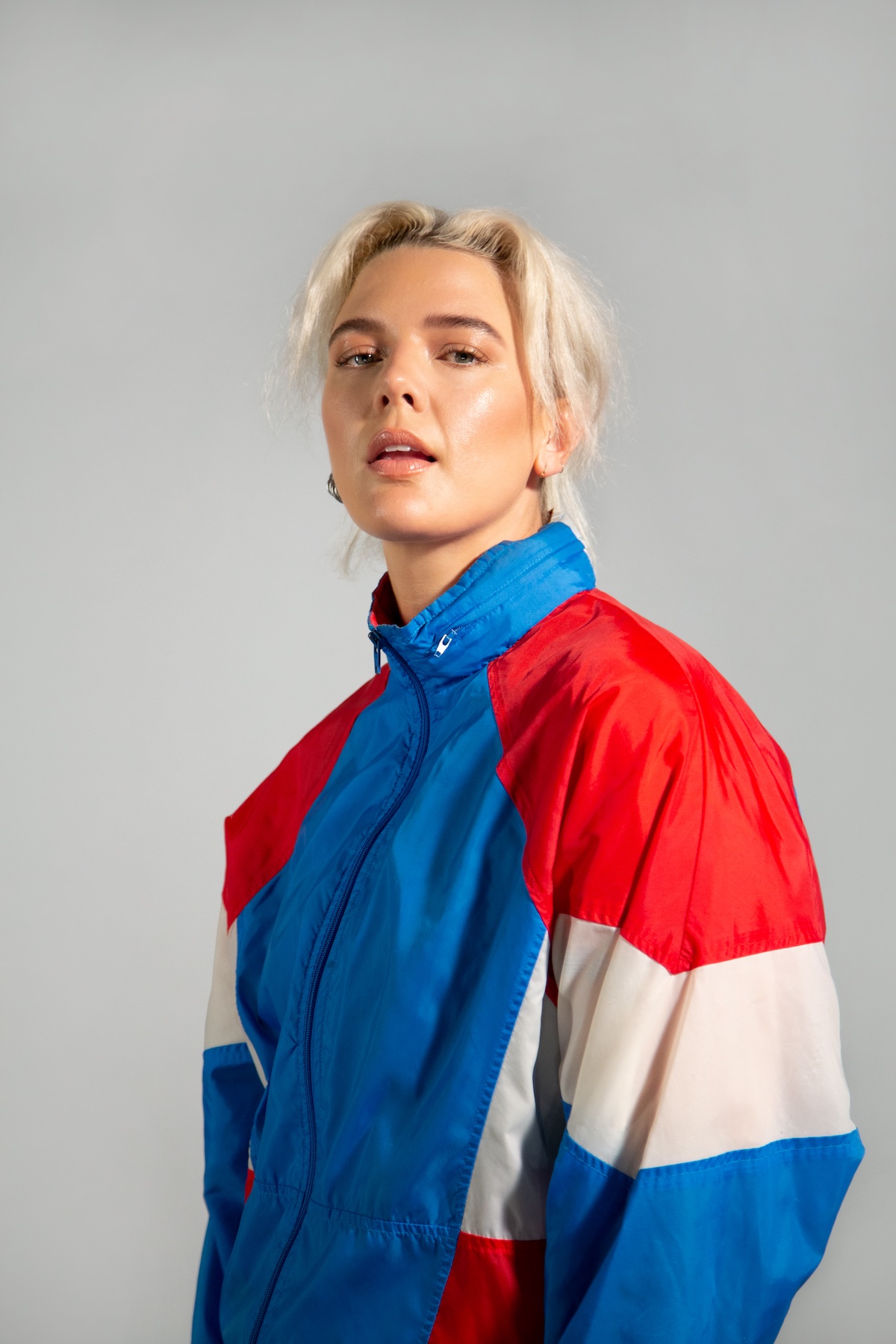
Yeah, that's really cool. Do you think you would want to do something like that again?
Betty Who: Oh, I’m I have realized I am such a show pony. Like dance, monkey, dance. I love to work, I love to entertain. And I try not to take myself too seriously. I want to host a baking show. I love baking. It really feels like my options are limitless and endless because I am allowing them to be, and I love to meet new people. I loved the team I made The One That Got Away with. I thought, I’m gonna go work on a show for a month and it’s gonna be fun, who cares? And I left being kind of fundamentally and forever changed. I didn’t realize how much I needed someone to say, I believe in you. And I think you can do this.
•• ••
See Betty Who on her upcoming BIG! headlining tour with support from RuPaul’s Drag Race All Stars winner, Shea Couleé, along with Slayyyter and Neve.
— —
:: stream/purchase BIG! here ::
Stream: ‘BIG!’ – Betty Who
— — — —

Connect to Betty Who on
Facebook, Twitter, Instagram
Discover new music on Atwood Magazine
? © Kate Biel
:: Stream Betty Who ::

